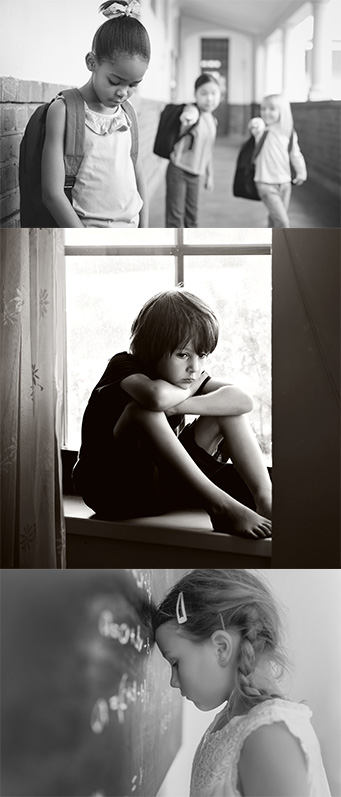Children’s Mental Health Challenges are Growing
Half of all mental health conditions start by 14 years of age but most cases are undetected and untreated.1
Adolescents commit suicide every year in the US as early as age 8.2
6 years old is the average age when anxiety and depression disorders begin.3

Social media, Social pressure, academic pressure...these are just a few of the realities our nation’s youth experiences on a daily basis. With the rise of behavior and emotional disorders like anxiety, depression and ADHD, children are now facing more stress and experiencing greater risks to their mental health more than ever. Adolescents with emotional disorders commonly experience symptoms such as frustration, anger, and irritability- sometimes even leading to physical symptoms like headaches, stomach aches or nausea.
While emotional and behavioral disorders are being diagnosed in children younger and younger, mental health awareness is customarily targeted towards adults. Untreated disorders during childhood can often lead to repeated, more severe symptoms of emotional or behavioral problems at later stages in life putting children at a higher risk of poor decision making. We see cases of mental and emotional instability in the form of hate and violence on the news everyday, with many cases sharing an underlying theme- untreated mental health conditions. It only makes sense that in order to advance the mental health of our future adults, we need to first start with our children!
1. Adolescent Mental Health. (2018, September 18). Retrieved from https://www.who.int/news-room/fact-sheets/detail/adolescent-mental-health2. http://www.cdc.gov/violenceprevention/pub/youth_suicide.html. 3. Merikangas, K., Hep, J., Burstein, M., Swanson, S., Avenevoli, S., Cui, L., Benejet, C…Swendsen, J. (2010). Lifetime prevalence of mental disorders in U.S. adolescents: results from the National Comorbidity Survey Replication--Adolescent Supplement (NCS-A). Journal of American Academy of Child and Adolescent Psychiatry. 49(10): 980-989. doi: 10.1016/j.jaac.2010.05.017.